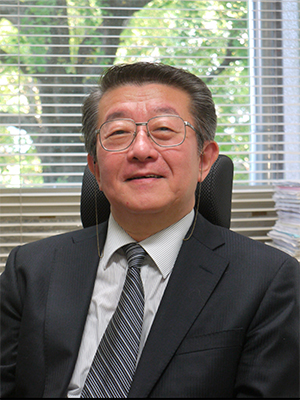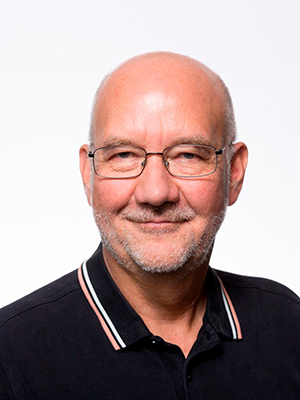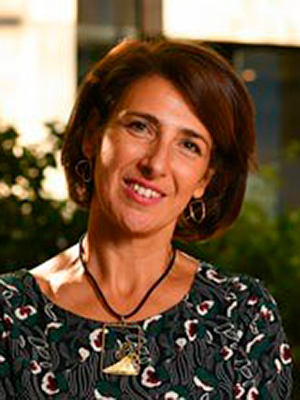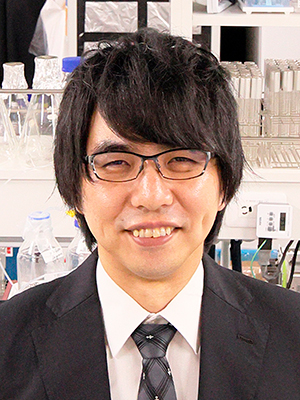Finsen Medalists

Kristian Berg, Institute of Cancer Research, Oslo University Hospital, Norway
Professor Kristian Berg has been head of the Department of Radiation Biology for 13 years and leader of the PCI-group for more than 25 years. After his MSc in biochemistry he has more than 30 years of experience in experimental and preclinical research within the field photodynamic therapy (PDT). A major focus of his research has been to reveal the mechanisms involved in the therapeutic effects of PDT and implementing such knowledge towards clinical utilization. These studies has influenced on the development of 5-aminolevulinic acid esters into clinical use. Since 1995 the focus has been to utilize PDT as a platform, named photochemical internalization (PCI), for inducing intracellular delivery and activation of drugs that accumulate in endocytic vesicles. This includes macromolecular therapeutics under development for clinical use in e.g. recombinant immunotoxin therapy, antigens for cancer vaccination, gene therapy and oligonucleotides for inhibition of gene expression, nanotechnology as well as some chemotherapetics. Several clinical trials have been carried out on the PCI technology. This research has resulted in approx. 120 publication with Berg as coauthor and more than 400 peer-reviewed publications worldwide focusing on the PCI technology. In total, he has published more than 250 scientific publications on photobiological topics as well as 11 patents.
Kristian has been the President of the European Society for Photobiology (ESP) and involved in various commitments in ESP for more than 20 years, Board Member of IPA, Founder and Director of the ESP Photobiology School since its start in 2010 till 2020 and contributed to establishment of the photomedical companies Photocure and PCI Biotech. Kristian has also been associated editor of the journal Photochemical & Photobiological Sciences since 2008 and member of the advisory board of the journal Photodiagnosis and Photodynamic Sciences since 2007. He has received several awards including most recently the Lifetime Achievement Award of the International Photodynamic Association (2023), European Commissions Innovation Radar Prize for Innovative Science (2019), European Society for Photobiology Award for Excellence in Photobiological Research (2013). He is also elected Member of the Norwegian Academy of Science and Letters and the Royal Norwegian Society of Sciences and Letters.

Yoshitaka Fukada, Graduate School of Science, University of Tokyo, Japan
Dr. Yoshitaka Fukada is an animal photobiologist and consistently interested in physiological roles and molecular mechanism of light signaling in animals. He is now Professor Emeritus of the University of Tokyo, and he has been Professor of The University of Tokyo, School of Science for 25 years (1995-2021) and Associate Professor of the University of Tokyo, Graduate School of Arts and Sciences for 3 years (1993-1995). He received Ph.D. in 1983 from Kyoto University under the guidance of Prof. Tôru Yoshizawa who won the Finsen Medal in 2000.
Dr. Fukada started his scientific career in Yoshizawa’s lab by finding that metarhodopsin II is a physiologically active intermediate of bovine rhodopsin. In his earlier scientific career, he endeavored to pursue biochemical and molecular biological studies on the retinal photoreception by photoreceptive opsins and the light-signal transduction process mediated by G-protein (transducin) in vertebrate visual cells. Dr. Fukada in Yoshizawa’s lab at Kyoto University purified four kinds of cone photoreceptor opsins for color vision, UV-Violet (SWS1), Blue (SWS2), Green (RH2), and Red (LWS) opsins from the chicken retinas, and cDNA cloning of the four color opsins revealed that the divergence of the color opsin genes are ancient to that of divergence of rhodopsin, a scotopic opsin. After Dr. Fukada started his own lab in 1993, he investigated the gene expression network regulating the four color opsins in the cone visual cells. Also, he found that C-terminal farnesylation of G-protein transducin gamma-subunit and heterogeneous N-terminal fatty-acylation of the alpha-subunit in rod cells are indispensable for the light signaling triggered by rhodopsin. He extended his interests to the photoreception in the pineal gland, and his group identified a new opsin and named it “pinopsin” after pineal opsin as the first example of opsins expressed in extra-retinal tissues of a variety of animal species. Recently, he has been focusing his efforts on revealing cellular and molecular processes important for not only the circadian clock oscillation but also its photic regulation. Together, he devoted to investigation of cellular and molecular processes important for the visual/non-visual transduction in photosensory organs and the photic regulation of the circadian clock.
Dr. Fukada also devoted great effort to academic activities, serving as president of The Photobiology Association of Japan (2015-2016), The Japanese Society for Chronobiology (2017-2022), and The Japanese Society for Comparative Physiology and Biochemistry (2020-2021). He also served as vice president of The International Union of Photobiology, Executive Board Member of IUPB (2009-2014), and he was elected as a Member of Science Council of Japan (2018-) to serve for scientific activities of the Japanese government. He has received a number of awards including Yoshida Memorial Award from The Japanese Society for Comparative Physiology and Biochemistry (1992), Young Investigator Award from The Japanese Biochemical Society (1992), The Zoological Science Award from the Zoological Society of Japan (2006), The Commendation for Science and Technology by the Minister of Education, Culture, Sports, Science and Technology from MEXT, Japan (2014), The 3rd PAJ Award from the The Photobiology Association of Japan (2018) and Axelrod Lectureship Award from The European Biological Rhythms Society (2022).
Dr. Yoshitaka Fukada has actively steered his lab toward uncovering new-generation photobiology and his contributions to sensory photobiology for more than 40 years are of the highest caliber.

Jean Krutmann, IUF – Leibniz Research Institute for Environmental Medicine, Düsseldorf Germany
Jean Krutmann was born in 1959 in Menden, Germany, and obtained his MD from the University of Münster in 1986. After several stays abroad (postdoc at Case Western Reserve University, Cleveland, Ohio, USA and DFG stipend at the University Hospital for Dermatology in Vienna, Austria) he became resident, assistant/associate professor at the University Hospital for Dermatology of Freiburg. From 1994 until 2001 he was full professor/deputy director of the University Hospital for Dermatology Düsseldorf. In 2001 he was appointed Chair of Environmental Medicine at the Medical Faculty of Heinrich Heine University Düsseldorf and thereby also Director of IUF. Under his directorship in 2011 the institute became a member of the Leibniz Association and was renamed IUF – Leibniz Research Institute for Environmental Medicine.
His research focuses on dermatoxicology, immunodermatology and photodermatology with a special emphasis on environmentally-induced skin diseases and skin aging.
He is author/coauthor of more than 450 contributions to scientific journals and books as well as editor of 9 textbooks.
Jean Krutmann was awarded several national and international prizes: Arnold Rikli Award, Albrecht Fleckenstein Award, Paul Gerson Unna Award, Oscar Gans Award, CE.R.I.E.S. Research Support Award, Dermopharmacy Innovation Award, the Tanioku Kihei Memorial Award and the Gerald Levene Oration. Since 2010, he is member of the Leopoldina, the German National Academy of Science. Since 2023, he is speaker of the DFG Research Unit FOR 5489 (Understanding AHR signaling in skin disorders). Since 2021, he is co-speaker of the Leibniz Research Alliance “Resilient Ageing”. Since 2019, he is honorary member of the American Society for Investigative Dermatology (SID) and the Japanese Society for Investigative Dermatology (JSID). Within the scope of the cooperation with Fudan University in Shanghai, China, he is Distinguished Adjunct Professor as well as Senior Visiting Professor of the Human Phenome Institute at the School of Life Sciences, and Associate Chair of the Strategic Steering Committee of the International Human Phenome Project.
Edna Roe Lecturer

Angela Falciatore, CNRS, France
Angela Falciatore is Research Director of the French National Centre for Scientific Research (CNRS) and Director of the Research Unit “Chloroplast Biology and Light sensing in Microalgae” at the Institut de Biologie Physico-Chimique (IBPC) in Paris. Angela investigates the mechanisms by which light impacts the life of phytoplankton in the oceans. Her interest for marine biology and photobiology stems from the research performed at the Stazione Zoologica Anton Dohrn of Naples (SZN) in Italy, where she obtained a PhD in 2002, by performing pioneering research on the perception of environmental signals in marine diatoms. Particularly interested in the dynamic responses of photosynthetic organisms to light, she conducted post-doctoral research on the chloroplast-to-nucleus retrograde signalling in Chlamydomonas reinhardtii at the University of Geneva, Switzerland. Other activities at the Okazaki National Institute for Basic Biology, Japan (1997), and at the Carnegie Institution of Washington, Stanford University, USA (2003), contributed to enlarge her expertise in photobiology. In 2005, she started an independent research activity at the SZN, Italy. At the end of 2009, she got a permanent position from CNRS and moved her activity to France, first at Sorbonne Université and, since 2019, at the IBPC.
Her laboratory is dedicated to the study of light-driven processes (photosynthesis and photoperception) and chloroplast biology. Combining physiological, biophysical, biochemical, and genome-wide molecular approaches in marine diatoms, her team has characterized diversified photoreceptors, fostering novel hypotheses on the role of these sensors in controlling growth and adaptive responses in a marine context. She also uncovered the existence of a long-foreseen diatom circadian clock, which controls essential rhythmic processes in these algae. Her team is also contributing to disclose some of the diatom-specific photoacclimation properties, by identifying critical regulators of photosynthesis that also influence the natural variability of photoresponses.
Angela has received a number of awards including the ‘Career Development Award, Human Frontier Science Program Org. (HFSP) in 2006; the “Coups d’Élan” Prize for French Research- Fondation Bettencourt Schueller in 2018; the Prize “Laureata Illustre” University Federico II of Naples, Italy in 2019; The Prix des Sciences de la Mer – Marine Science Award, Académie Des Sciences, l'Institut de France in 2021. She has been elected member of the European Molecular Biology Org. (EMBO) in 2023.
Finsen Lecturer

Keiichi Inoue, Institute for Solid State Physics, University of Tokyo, Japan
Keiichi Inoue is an associate professor at the Institute for Solid State Physics, the University of Tokyo, Japan. He earned his Ph.D. in the study of the photoreaction dynamics of microbial and animal rhodopsins using the transient grating method under the supervision of Prof. Masahide Terazima in the Department of Chemistry, Kyoto University, Japan in 2007. From 2007 to 2009, he joined Prof. Masaaki Fujii and Prof. Makoto Sakai’s laboratory as a project assistant professor at the Chemical Resources Laboratory, Tokyo Institute of Technology, Japan, and developed infrared super-resolution microscopes. Subsequently, he moved to Prof. Hideki Kandori’s laboratory at Nagoya Institute of Technology, Japan. From 2009 to 2016, as an assistant professor, he conducted the study of the molecular mechanism of microbial rhodopsins using functional assay and spectroscopic methods. He then advanced to an associate professor at the same place, serving from 2016 to 2018.
Dr. Inoue’s current research focuses on the exploration of new functional rhodopsins and the physicochemical study of their molecular mechanisms by time-resolved spectroscopy, electrophysiology, and structural analysis. Notably, he identified light-driven outward sodium-pumping and inward proton-pumping rhodopsins. Leveraging these fundamental insights, he is also developing new artificial rhodopsins with novel or higher functionality useful for optogenetic applications. Additionally, he is pioneering machine learning methodologies for designing novel functional proteins.
For the achievements in his research, Dr. Inoue has received numerous accolades, including The Investigator's Award of Research Foundation by the Research Foundation for Opto-Science and Technology (2014), The Young Scientists’ Prize, The Commendation for Science and Technology by the Minister of Education, Culture, Sports, Science and Technology, Japan (2014), The Chemical Society of Japan (CSJ) Award for Young Chemists (2016), The 26th IUPAC International Symposium on Photochemistry, Awards for excellent presentations (2016), and The Sir Martin Wood Prize by the Millennium Science Forum (MSF) (2019).
Beyond his academic and research achievements, he has actively contributed to the Photobiology Association of Japan (PAJ) as a public-relations member since 2017.
